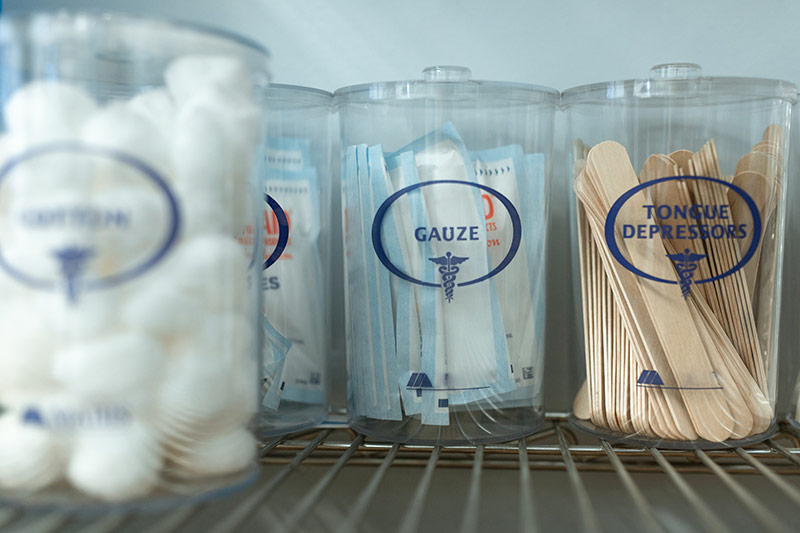Dorchester Penitentiary clinical educates nursing students on mental health, social justice
Author: UNB Newsroom
Posted on Dec 6, 2021
Category: UNB Fredericton

Abby Winters wasn’t sure what to expect when she first passed through the doors at Dorchester Penitentiary’s Shepody Healing Centre, but the unique experience transformed her perspectives on mental health and social justice.
As students in UNB’s bachelor of nursing advanced standing program in Moncton, Winters and her classmates were able to participate in the clinical placement as part of their mental health education.
Winters was already interested in mental health and found working directly with this vulnerable population to be eye-opening.
“It was life-changing,” she says. “It scared me knowing just how many gaps there are in the system, and how many of these people got missed. Everyone in there has made decisions they felt like they had to in order to meet their needs.”
The students completed about 100 clinical hours each over three weeks, working with health professionals across the facility and Dr. Petrea Taylor, an assistant professor at UNB’s Moncton nursing site who oversees the placement. For Winters, it was powerful to witness the work being done and felt positively about providing support.
“Some people communicate with these inmates and allow them to speak really therapeutically,” Winters says. “It felt like progress for them to open up and have these realizations.”
Jeremy Roy-Leger, a registered nurse in mental health services at the penitentiary, was joined by students while he ran programming for the inmates.
“I enjoy having students and showing them things that, for me, are part of the job. For them it’s different, it’s new,” says Roy-Leger. “But our clientele requires health services just as people do in the community, including mental health services.”
Students participated in the nursing care of clients with the supervision and guidance of nursing and allied health professionals and UNB faculty. They assisted in providing medicine, sat in on sessions with counsellors, and, in some cases, interacted with the clients, asking questions or having full conversations. Several students told Roy-Leger their preconceptions about the environment were completely shifted.
“Our goal is to empower these people and release them into society again as better citizens. That’s why we offer these programs,” says Roy-Leger. “Not everyone succeeds and every case is different. Some clients have made bad decisions and require therapy to address the underlining issues. It makes you think and see the world from the perspective of inmates in a different way.”
In keeping with the faculty of nursing’s mission grounded in the principles of primary care, social justice and caring supported by evidence and research, the clinical learning experience focused not only on the mental health issues inmates were facing, but also how they ended up where they are.
Through the experience, the student nurses are also taught how to leave their biases at the door in order to administer care to clients – no matter the environment.
“Our group often talks about stigma and how it affects mental health,” says Dr. Taylor. “This placement isn’t about the prison or the fact that the clients are in prison. However, it’s an important place to be focusing on mental health. The system is set up to punish ‘bad’ people. Prison populations have a lot of needs and are often forgotten about, despite needing the most help.”
This was the third time UNB students have participated in a mental health clinical placement at Dorchester Penitentiary and all sides agree the experience is a beneficial one.
“Students bring a positive and vibrant energy to the team. They’re often eager to learn, receptive to information, interested and curious,” says Roy-Leger. “It was interesting to see their reactions.”
UNB is committed to supporting the province by providing our students with experiential learning opportunities that make an impact in their chosen fields while they study. Find out more information about becoming a preceptor or clinical instructor with the faculty of nursing.
